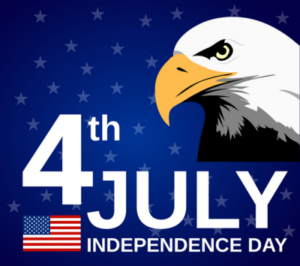18th Century: The Birth of Independence Day
The tradition of celebrating July 4th dates back to the American Revolution. On July 4, 1776, the Continental Congress adopted the Declaration of Independence, proclaiming the thirteen American colonies’ separation from Britain. The first celebrations occurred shortly thereafter. In 1777, Philadelphia marked the first anniversary with bonfires, bells, and fireworks. These early celebrations were symbolic acts of patriotism and resistance against British rule.
19th Century: Institutionalization and Expansion
By the early 19th century, July 4th celebrations had become more widespread and elaborate. In 1801, Thomas Jefferson hosted the first Fourth of July celebration at the White House. Parades, public readings of the Declaration, and oratory flourished, fostering a sense of national unity. With the War of 1812 stirring patriotic fervor, these celebrations became even more pronounced. By the 1870s, Independence Day was the most significant non-religious holiday on the American calendar. In 1870, Congress made July 4th a federal holiday, further solidifying its importance.
20th Century: Modernization and Commercialization
The 20th century saw July 4th observances becoming more standardized and commercialized. Parades, fireworks, barbecues, and concerts became traditional ways to celebrate the day. Major cities hosted grand fireworks displays, drawing large crowds. During both World Wars, July 4th took on added significance as a demonstration of national resolve and unity. The post-war period saw the emergence of the holiday as a family-centered event, with picnics, sporting events, and community activities becoming central to celebrations.
21st Century: Contemporary Celebrations
In recent decades, the ways Americans celebrate July 4th have remained largely consistent, though with evolving trends. Technological advancements have led to increasingly sophisticated fireworks shows, often accompanied by patriotic music broadcasts. Major cities like New York and Washington, D.C., host televised events that draw millions of viewers nationwide. Parades, concerts, and ceremonies honoring military service members continue to play a significant role. Additionally, discussions around the inclusivity and historical context of the holiday have led to a deeper reflection on its meaning and significance.
Throughout its history, July 4th has remained a day of patriotism, celebration, and reflection, evolving with the nation’s changing landscape while maintaining its core significance as a commemoration of American independence.

